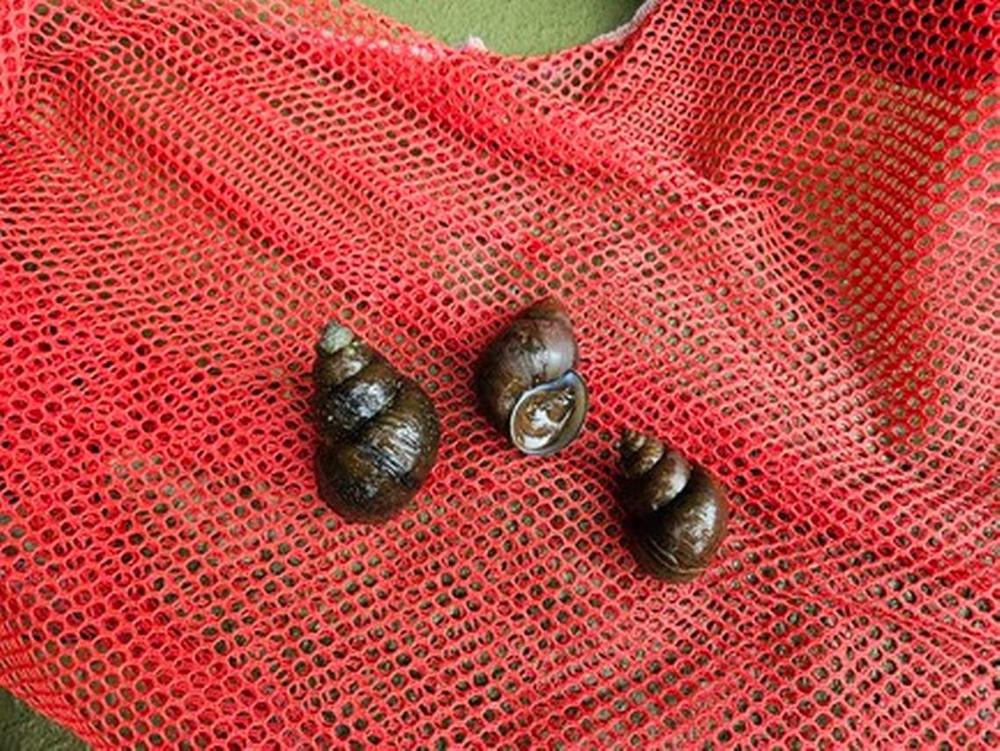
Caption
The Chinese/Japanese Mystery Snail was found during routine sampling on Lake Lanier. The invasive snails are native to parts of Asia.
Credit: Georgia Department of Natural Resources’ Wildlife Resources Division

The Chinese/Japanese Mystery Snail was found during routine sampling on Lake Lanier. The invasive snails are native to parts of Asia.
An invasive, shelled creature was spotted in a popular Georgia lake, as experts warn the public of potential environmental and health risks.
The creature, a Chinese/Japanese Mystery Snail, was found during routine sampling on Lake Lanier.
But the one snail sighting was only the beginning.
“While we initially hoped that this was an individual specimen found on Lanier, further investigation indicated that this is a viable, reproducing population of snails,” Jim Page, aquatic nuisance species coordinator for the Georgia Department of Natural Resources’ Wildlife Resources Division, said in a June 18 news release.
The two types of mystery snails — both the Chinese and Japanese variety — are similar, with brown shells that have several spirals and grow to about 2 inches long. Though they are native to Asia, the animals have been found in the “Upper Chattahoochee,” “Upper Ocmulgee” and “Upper Oconee” regions of Georgia in the past 11 years, according to the state wildlife website and the U.S. Geological Survey.
Now, a sighting has been reported in Lake Lanier, roughly a 50-mile drive northeast from Atlanta. People boating and fishing at the popular destination are urged to be aware of the snails.
“While we cannot say with absolute certainty how this invasive snail was introduced into Lake Lanier, its presence in various food markets within the U.S. and its popularity as a pet for some aquarium owners are at least two possible sources,” Page said.
To help avoid the spread of invasive species, state wildlife officials said prevention is key. They encourage people to avoid dumping non-native animals in the water and to rinse off their boats and fishing equipment.
When non-native species are found already in the water, people are asked to report sightings online and remove any they catch. It’s illegal to have live mystery snails in Georgia, experts said.
“Concerns associated with the mystery snail species include its potential to negatively impact native snails and being a possible health risk (ex: can host intestinal parasites) if consumed raw or undercooked,” state officials wrote.
This story comes to GPB through a reporting partnership with the Columbus Ledger-Enquirer.